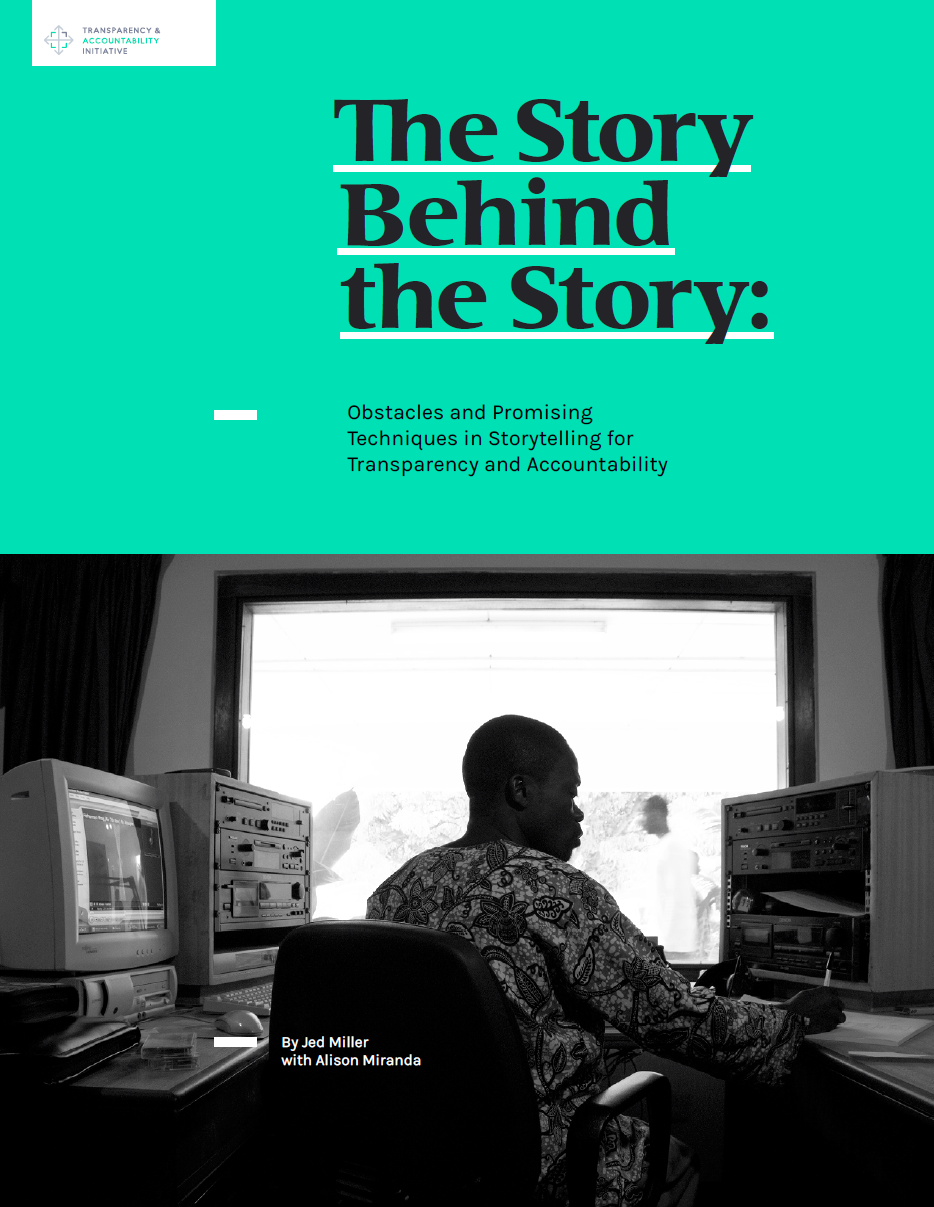Highlights:
- Truth via the machine
- Data = money or data finds the money?
- Taking the local
- Shrinkage effects
- Papal injunction
- Practice makes perfect
- Time to get GLAMorous
- Odds and ends
- TAI spotlight: From bidding for contracts and algorithmic systems
In case you missed it…
Truth via the machine

Photo: Geralt on Pixabay
We know how algorithms have fueled manipulation of our newsfeeds, but how effectively can they combat misinformation? The Open Data Institute may soon be able to tell us in more detail as they have partnered with Full Fact, a previous Luminate grantee (TAI Member) and International Fact-checkers to address this issue as winners of the Google AI Impact Challenge. Together, they aim to increase the availability and quality of the data being used to train automated fact-checking systems. Inspiration may be found in the activities of media groups in the Philippines, South Africa, and India who have already come up with innovations to map and store data around misinformation. For example, Rappler, the Filipino example, mapped and stored data about disinformation into a database called the “shark tank.”
Of course, countries can also try and legislate against mis and disinformation. Arjun Bisen believes that the work of democracy cannot be left to global tech companies and calls for the modernization of our regulations. Yet there is always the risk that a cure may indeed be worse than the disease, as laws can be so open to political abuse. In Singapore, human rights groups, journalists, and tech firms are criticizing an anti-fake news law passed by Singapore’s parliament last week that would require online media platforms to post corrections on or remove content that the government considers to be false.
A blunter tool yet is to shut off access – legally or not. In Mexico, an anti-corruption news website, Mexicanos Contra La Corrupción y Impunidad (MCCI) was hit with cyberattack limiting the site’s functionality for nearly 13 hours while attackers temporarily replaced some content on the homepage. The Venezuelan government is implementing forms of internet censorship targeting platforms being used by opposition leaders. Finally, China is now blocking all language editions of Wikipedia.
Data = money or data finds the money?
Returning to the machines, Gavin Hayman asks how AI and big data will change public finance and calls for a digital data architecture that is truly fit for purpose. (This blog is part of our ongoing Fiscal Futures series with International Budget Partnership and Carnegie Endowment).
One area ready for automation, according to Regulation Asia and BearingPoint, is compliance with tax transparency requirements. Many organizations are now seeking refuge in technology to speed up their processes and save money. We know of government tax authorities looking at the same – perhaps those in Africa can seek support from Google’s first Africa Artificial Intelligence lab.
Of course, big data analysis relies on having a critical mass of data to work with. On the tax compliance front, Andres Knobel argues it’s time for the Financial Action Task Force and Egmont Group to have access to the useful foreign banking data available to tax authorities. This would allow banking data, not only to be used to tackle tax evasion but also help prevent corruption and money laundering. Elsewhere, the Peruvian government approved a new law seeking to tackle corporate tax avoidance, especially on contracts which either defer revenues or bring forward spending to reduce corporate tax liability.
Yet AI potential is likely a distraction from the more fundamental problems in revenue mobilization. Centre for Global Development Fellows Mark Plant and Sanjeev Gupta highlight inequitable power structures that create widespread perceptions of unfairness, corruption, and a lack of transparency, which compromises compliance and enforcement mechanisms. What to do? Suggestions include increasing resources for audits, establishing well-resourced large taxpayer units, and simplifying tax processes to lessen the administrative burden.
Taking the local
If you are heading to the Open Government Partnership Summit in a couple of weeks, you might want to bone up on nearly 100 innovative open government case studies from over 30 countries. Some of the more interesting conversations in Ottawa are likely to focus on subnational open gov efforts. It’s intriguing to see another example of the trend of global multi-stakeholder transparency initiatives trying to get more traction at subnational level – this time with Buenos Aires becoming a member of the Construction Sector Transparency Initiative.
What might be challenges to the open evangelists? James D’Angelo and Brent Ranalli argue that transparency in the legislative process has exacerbated partisanship in many ways. They observe that legislators tend to be more compromising when meeting in private and more willing to engage in the give-and-take that can lead to win-win solutions. In the presence of an audience, by contrast, they tend to showboat and take hard-line positions.
Is open government a vote getter? It’s unlikely to top voters’ concerns, but corruption might – as we’ve seen in so many countries of late. The Economist considers US Democratic Party foreign policy with an election next year and urges treating corruption as a strategic matter – a platform including “identifying tools that can interrupt the corrupt flows of money that empower oligarchs, princes, and China’s state-owned enterprises” could be popular. Sounds a winner to us.
Essential Listening

Benefit from a curation of interviews with leading experts from the anti-corruption field including researchers, journalists, prosecutors and civil actors on Kick Back a global anti-corruption podcast. Listen Now!

Kavitha Rajagopalan discusses the ongoing Indian election through the complicated lens of citizenship and explains the vast power of political organizing and social media. Listen Now!
Shrinkage effects
A new case study by Tony Roberts exploring the prospects for measuring the impacts of restricted civic space on development in Ethiopia found that NGO service delivery capacity has been severely reduced in parts of the country due to restrictions on civil society. 1,741 NGOs have closed down completely, particularly impacting service delivery capacity in the areas of advocacy for gender, ethnic, and minority rights. (Glean more on challenges for local NGOs in this week’s Long Read)
The courts are often a last line of defense for those seeking to safeguard their rights – perhaps one motivator for growing TAI interest in leveraging strategic litigation. So we were interested to read how women are strategically using courts to fight for their rights, and educate others along the way in Pakistan, while 1800 Zambian villages convinced the UK Supreme Court to let them sue the Vedanta mining company over alleged pollution.
Papal injunction
We don’t often cite from Vatican News in the TAI Weekly, but the Zambian communities’ hopes of a court win and redress may be buoyed by some newly mobilized moral authority. In a meeting on ‘mining for the Common Good,’ the Pope urged that mining should be at the service of the entire human community, and should involve local communities in every phase of mining projects. He denounced the fact that “economic powers continue to justify the current global system where priority tends to be given to the pursuit of financial gain, which fail to take the context into account, let alone the effects on human dignity and the natural environment.”
Sadly, not many seem to have been heeding the Pope’s sentiments in Ghana, where Kwasi Gymfi Asiedu points to a 60% spike of losses of primary rainforest in 2017. Asiedu says the main drivers are illegal small-scale mining, clearing for cocoa farming, and China’s resources for roads’ program, a deal with the Ghanaian government to exchange bauxite for infrastructure.
Finally, see this innovation tool from NOSDRA in Nigeria that monitors oil spills. They are working with the industry to improve compliance and reporting obligations. Explore the visuals and the data.
Long Read
 Turning the Page: Rebuilding Civil Society in Ethiopia by DefendDefenders
Turning the Page: Rebuilding Civil Society in Ethiopia by DefendDefenders
DefendDefenders examines the challenges faced by Ethiopian human rights defenders (HRDs) amid the ongoing reform process and makes concrete recommendations for rebuilding a robust and inclusive civil society ahead of elections planned for 2020.
Practice makes perfect
In our last Weekly, we highlighted how engaging in collaborative philanthropy can be of great benefit to those new to the field. Eugene Eric Kim emphasizes that getting better at collaboration is “simply” a matter of practicing, and the more we figure out how to encourage practice, the better we will get at collaboration.
What about collaborating well and building relationships while working remotely? How to do it? Katherine Haugh, Matt Baker, and Lauren Leigh Hinthorne from USAID offer six tips for remote working and successful collaboration.
Time to get GLAMorous
Adaptive management is now well established in the international development speak, but why not more in practice? Ben Ramalingam and Leni Wild argue that we need to build better and more rigorous feedback and learning systems based on insights from the Global Learning for Adaptive Management (GLAM) initiative. What else should be done? Vote in the online survey.
Meanwhile, a LearnAdapt briefing from Overseas Development Institute offers four lessons for DFID’s new Secretary of State, Rory Stewart on how to address complex problems without creating overly complicated, and difficult to manage programs.
Are you capturing your grantee stories in a compelling way? Carine Umuhumuza worries that developmental actors are not doing it well argues there is need to shift their perspectives and strategies of storytelling in order to achieve substantial results. She argues that the existing formula lacks imagination and authenticity about the complex narratives of people around the world. How to do that? By creating space for new storytellers, creating space for stories that don’t necessarily have endings, and telling stories that kick start conversations about long-term solutions. She goes on to make the case of people-centered stories that are as unfiltered or unprocessed as possible. Check out more tips on embedding storytelling in grantmaking programs from our story behind the story report.

Odds and ends
Last week we saw the launch of SDG Accountability Handbook: A Practical Guide for Civil Society by the Transparency, Accountability, and Participation Network. The report aims to help CSOs hold governments accountable for commitments made in the 2030 agenda and to the sustainable development goals, including tips on approaches that CSOs can use in opening civic space.
Want to assess your published IATI data easily? Last week we mentioned IATI Canary, but you might also want to check out Publish What You Fund’s Data Quality Tester and IATI Decipher. We also mentioned two new data-related blogs last week – and here comes a third: TFSCB: Statistics for a Better World, that aims to show the human impact that data can achieve by sharing compelling examples of how statistics can catalyze results in low-income countries. (But why keep the Trust Fund acronym in the title?)
TAI spotlight
How UK aid is making it easier for suppliers to bid for contracts | DFID
DFID Media Team explains how they have ended agreements that stopped them bidding as part of more than one consortium and ensuring prompt payment of sub-contractors by their suppliers.
All happy grantees are alike | Hewlett Foundation
Ruth Levine shares the three elements of a happy funder-grantee relationship.
The complicated legacy of Indonesia’s elections | Open Society Foundation
Darmawan Triwibowo notes the higher voter turnout and makes a call to action for more CSOs to respond to the rising tide of populism and identity politics.
Advancing our understanding of the impacts of algorithmic systems | Luminate
Salmana Ahmed shares why they are supporting ACM Conference on Fairness, Accountability, and Transparency that brings together siloed communities to address challenges around the development and use of algorithmic systems.
Calls: Proposals, papers, speakers and course invites
- Call for Papers: The Global Asset Registry Workshop – May 15
- Call for Abstracts: MIT GOV/LAB 4th Political Behavior of Development Conference – May 15
- 4th Global Call for Proposals for CSOs and CSO Networks – May 15
- GPSA 4th Global Call for Proposals – May 15
- Crowdsourcing case studies for the Innovation Report for 2019 on Civil Society – May 31
- Hewlett Foundation’s Call for Proposals to Coordinate Global Research, Learning, and Norms for Participatory Budgeting – May 31
- OSF Consultancy: Scoping Learning Needs during Anti-corruption Learning Opportunity – June 3
- Call for Applications: 100&Change: July 16
On the calendar
- Collective Impact Forum Convening – May 14-16, 2019 (Chicago, USA)
- The State of Open Data – May 21, (Brooklyn, NY)
- Free Webinar: The Think Tank – Funder relationship – May 22
- Policy Dialogue Day 2019 – May 22, 2019 (Gothenburg, Sweden)
- The 2019 Media Impact Forum: Radio Active Culture – May 23, 2019 (Philadelphia, USA)
- 2019 Open Government Partnership Global Summit – May 29-31, 2019 (Ottawa, Canada)
- Women Deliver 2019 Conference – June 3- 6, 2019 (Vancouver, Canada)
- RightsCon Tunis – June 11-14, 2019 (Tunis, Tunisia)
- InterAction Forum 2019 – June 11-13, 2019 (Washington, DC)
- Global Conference on Transparency Research – June 26 – 27, 2019 (Rio de Janeiro, Brazil)
- Tax Justice Network Conference 2019 – July 2 -3, 2019 (City, University of London, UK)
- ATI/ITC Tax and Development Conference 2019 – July 2 -4, 2019 (Berlin, Germany)
- IDEAS 2019 Global Assembly and Third International Conference on Evaluating Environment and Development – September 30 – October 4, 2019 (Prague, Czech Republic)
- Global Symposium (COPGS) on Citizenship, Governance, and Accountability in Health – October 15-18, 2019 (New Delhi, India)
- What Works Global Summit 2019: Building Evidence – October 16 – 18, 2019 (Mexico City, Mexico)
- Global Perspectives 2019 – October 29 – November 1, 2019 (Addis Ababa, Ethiopia)


